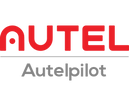Drone aerial inspection is the non-intrusive in-depth inspection of a specific area or structure using an unmanned aerial vehicle (UAV). Such drones are often equipped with high-resolution cameras, lidar sensors and other technologies that can capture detailed images of structures and send them remotely to inspectors.
In this article, we explore the importance of drone aerial inspections, the benefits of drone aerial inspections, and how industry standards and laws affect them.
Why are aerial drone inspections important?

One of the important tools why drones can be used as aerial inspections is the high-resolution camera lens of drones. Drones with cameras can be used to capture scenery or events. The camera standard for consumer drones is also capable of 4k resolution.
With so many different types of infrastructure in industries such as agriculture, power generation, utilities, public safety, and construction, drone aerial inspections are also proving to be the best way to conduct complex security inspections with incredible accuracy.
Traditional inspection techniques can be costly and pose a significant risk to inspectors. Powerline inspections are an example of this, as manual inspections require inspectors to climb the lines or use helicopters, both of which are time-consuming, expensive and potentially dangerous.
Aerial inspections using drones with high-resolution cameras can reduce costs and eliminate the need for inspectors to put themselves at risk. Autel EVO II Pro has a 1-inch large sensor, f/2.8-f/11 adjustable aperture, supports 20MP photos and 6k/30fps videos. Autel EVO II Pro can also perform photogrammetry, making it a great assistant for aerial inspections among commercial drones.
What are the benefits of aerial drone inspections?

There are many benefits to using a quadcopter drone for aerial inspections, including being more cost-effective and time-efficient, as well as providing a higher level of safety.
Cut Costs
Generally speaking, the more dangerous the inspection, the more expensive it will be. Whether it is hiring inspectors or adding additional auxiliary equipment, such as temporary structures such as cranes, scaffolding, high ladders or aerial lifts. Using drones for aerial inspections will cost less than relying on heavy machinery or large vehicles.
Time Efficiency
It is undoubtedly cumbersome and troublesome to conduct inspections in the power industry or the construction industry. Using drones for aerial inspections can not only save a lot of time to arrange equipment and personnel inspections, but also make changes within the specified range or in the details of buildings. Detailed duplicate detection. This will greatly improve the event efficiency of the inspection.
Security Improvement
High-altitude inspection is a very dangerous job. The extreme working height, carrying equipment and materials, and the danger of climbing are all increasing the hidden dangers of drone inspection.
Drone aerial inspections can eliminate the need for climbing, and can also support a maximum flight altitude of 500 meters and above, technicians can safely operate on the ground, and carry out zero-risk repeated inspections as needed without worrying about the time cost,Labor costs.
Precise
Aerial drone inspections can reveal problem spots by providing high-quality visuals in greater detail and on a larger scale than manual inspections. The drone's small size allows it to get close to buildings and around hard-to-reach areas so even the smallest details can be captured.
Using drones for aerial inspections also means taking advantage of the recording capabilities that most drone technology is equipped with. Instead of relying on written reports, companies can gain insight into specific inspection points anytime, anywhere by simply accessing surveillance footage from inspection drones.
Are there laws for aerial drone inspections?
In view of the recent use of drones in leisure and entertainment, there are concerns about safety and privacy. Because of these concerns, most jurisdictions have regulations regarding the commercial and industrial use of drones, but not necessarily laws (at least in a criminal sense) regarding drone inspections.
Structures used in many industries can be dangerous if not properly maintained. These regulations may require frequent inspections, and in many cases aerial drone inspections are the best option.
Many countries also have policies requiring the industry to follow certain standards during inspections. These standards are usually developed by associations within the inspection field.
Are there industry standards for aerial drone inspections?

As we mentioned earlier, countries often create regulations to enforce inspection standards. These are industry requirements established to ensure public safety. Industries that deal with high-risk structures such as pressure vessels, boilers, nuclear power plants or containers of toxic chemicals must adhere to strict safety rules.
Some regulations may require a representative of the inspecting agency to attend the inspection in person to ensure that the inspection is carried out in accordance with the specified standards. These representatives receive training and assessments before earning a credential that enables them to have authority in the field.
When it comes to drone aerial inspections, standards-setting organizations do not recommend which drone products to use. Instead, it's up to individual inspectors to choose which drones they want to use.
Which government entities are authorized to conduct aerial drone inspections?
Drone regulation usually falls under the jurisdiction of aviation authorities. As the use of drone technology grows, lawmakers are scrambling to keep up with its advancements. To help you better understand which government entities have played a role in regulating drone inspections, we've listed some recent examples of government drone policy below.
In August 2016, the Federal Aviation Administration (FAA) published Part 107 of the Federal Aviation Regulations, which covers regulations for drone operations, pilot certification, and equipment certification.
The UK Civil Aviation Authority has published CAP 722 – Operation of Unmanned Aircraft Systems in UK Airspace – to regulate the operation of Remotely Operated Aircraft Systems (RPAS) in the UK.
The Canadian government has also instituted new rules under Section 602.41 of the Canadian Aviation Regulations SOR/96-433 and amended older rules regarding certification and compliance requirements for drones.
In December 2016, the European Council published the basic regulations of the European Aviation Safety Agency ( EASA ). The bill contains the first-ever Union-wide standard allowing civilian drones to operate safely in European airspace. The role of the Aviation Safety Agency also changes with this new act. EASA will also draft regulations to make it easier for policy to adjust as technology advances.
Final Thoughts
Manual aerial inspections can be dangerous. They take time and resources and are sometimes not as precise as you need them to be. When using drones, they can operate from a safe distance and provide more in-depth information.
Drones work quickly and at a much lower cost than manual inspections. When you're choosing a drone service provider, it's important to do your research and find out if they meet industry standards. The use of drones for aerial surveys will be a new growth point for the drone industry in the future. Using professional drones for aerial inspections can achieve more effective safety, cost and time measures.








